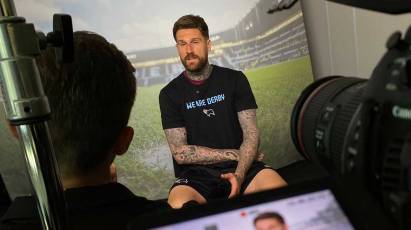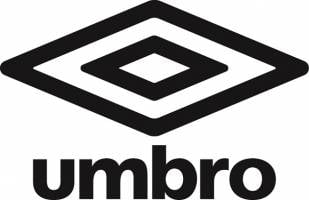Where does the time go? Fifty years - yes, you read that right - fifty years, have passed since Derby County sealed their maiden First Division title in the most dramatic of circumstances. Fifty years have crept up on us all so suddenly. Has it really been that long? So much has happened since, of course, but the memories of those times half a century ago should never be forgotten.
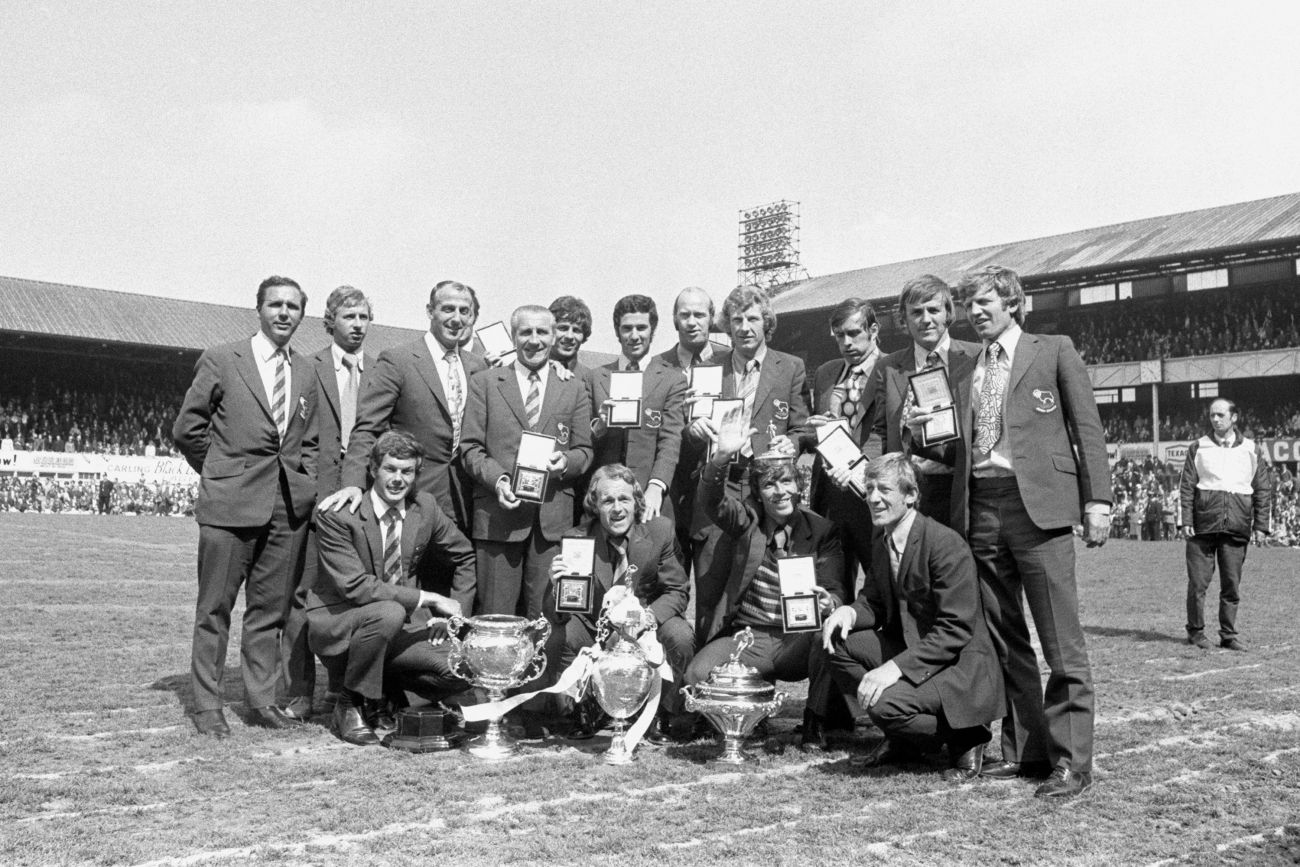
Because what the staff and players did for the people of Derby was huge. It created good times, memories to last a lifetime. Heroes were born, worshipped everywhere they went. A new generation of supporters grew up with the Ram proudly represented on their chest and for those fortunate enough to witness it first hand, dreams were fulfilled.
Now is a time to look back with pride as Derby County took on the big boys and won. They were triumphant. And, five decades on from that famous period in the club’s history, we take a trip down memory lane to breakdown just how the First Division title was won.
We start in the summer of 1967, five years before the infamous campaign, as Mr Brian Howard Clough, alongside his trusted assistant Mr Peter Thomas Taylor, entered the building at the Baseball Ground. The relatively unknown pair arrived from Fourth Division side Hartlepools United and had taken over the managerial reigns from Tim Ward who had left the Rams struggling in the second tier of English football.
It was quite a jump for duo, who had guided Hartlepools to only an eighth-placed finish the season previous, but after a recommendation from former Newcastle United and Sunderland striker Len Shackleton, chairman Sam Longson took the gamble and installed Clough and Taylor to the vacant managerial hotseat. It would prove to be a masterstroke.
But, it took time to build. He did have a core of players to work with, though. The likes of Ron Webster, Alan Durban and Kevin Hector were already in the building, whilst a young Colin Boulton was also on the books. They needed to recruit well, which was Taylor’s forte, whilst Clough was the man-manager and the motivator. Roy McFarland, a central defender, was their first transfer target.
They had seen a lot of the youngster, who had played the full season with Tranmere Rovers and achieved promotion from the Fourth Division at the age of just 19. Taylor described him as an ‘uncut diamond’ and after some hard negotiation, which involved both Clough and Taylor visiting McFarland’s house, he penned a contract which saw him swap Merseyside for the East Midlands.
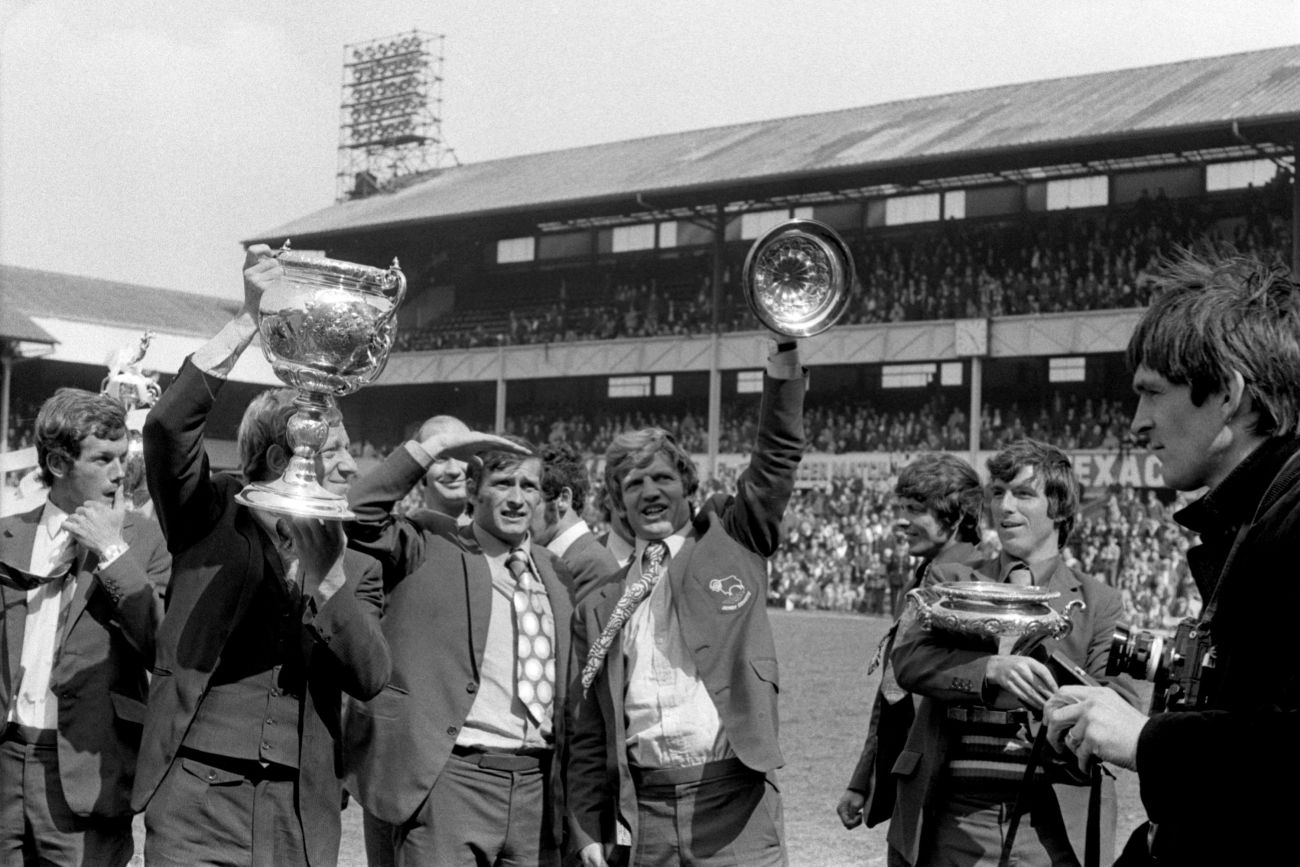
He wasn’t the only player brought in. Clough raided his former club Hartlepools and brought in the talented John McGovern, whilst influential pair John O’Hare and Alan Hinton were shrewdly recruited. But, the first season was one of struggle. They scored at a rapid rate, and had the second-best goals record in the league, but keeping the goals out at the other end proved difficult.
Derby eventually finished the season in 18th position, a place lower than the year previous, but green shoots of life appeared at least. An identity was being formed, and with obvious areas to improve, they knew what they needed to do. Players and staff departed as the pair rebuilt the club, and Clough once again turned to Taylor for guidance and inspiration on recruitment.
Willie Carlin, an experienced central midfielder, arrived, as did goalkeeper Les Green, again from Hartlepools United, but Taylor had a big name up his sleeve. He would pull a rabbit out of the hat as they secured the signing of central defender, and serial winner, Dave Mackay. It was the final piece of the jigsaw as they romped to the top of the Second Division and won it at a canter, losing only five games in the process.
Mackay brought the best out of everybody. He formed a good partnership with McFarland and improved his game, whilst his defensive displays allowed the attacking players to thrive. The title never looked in doubt as Derby finished seven points ahead of second-placed Crystal Palace. The challenge now, however, was to sustain their good form and kick on into the top flight.
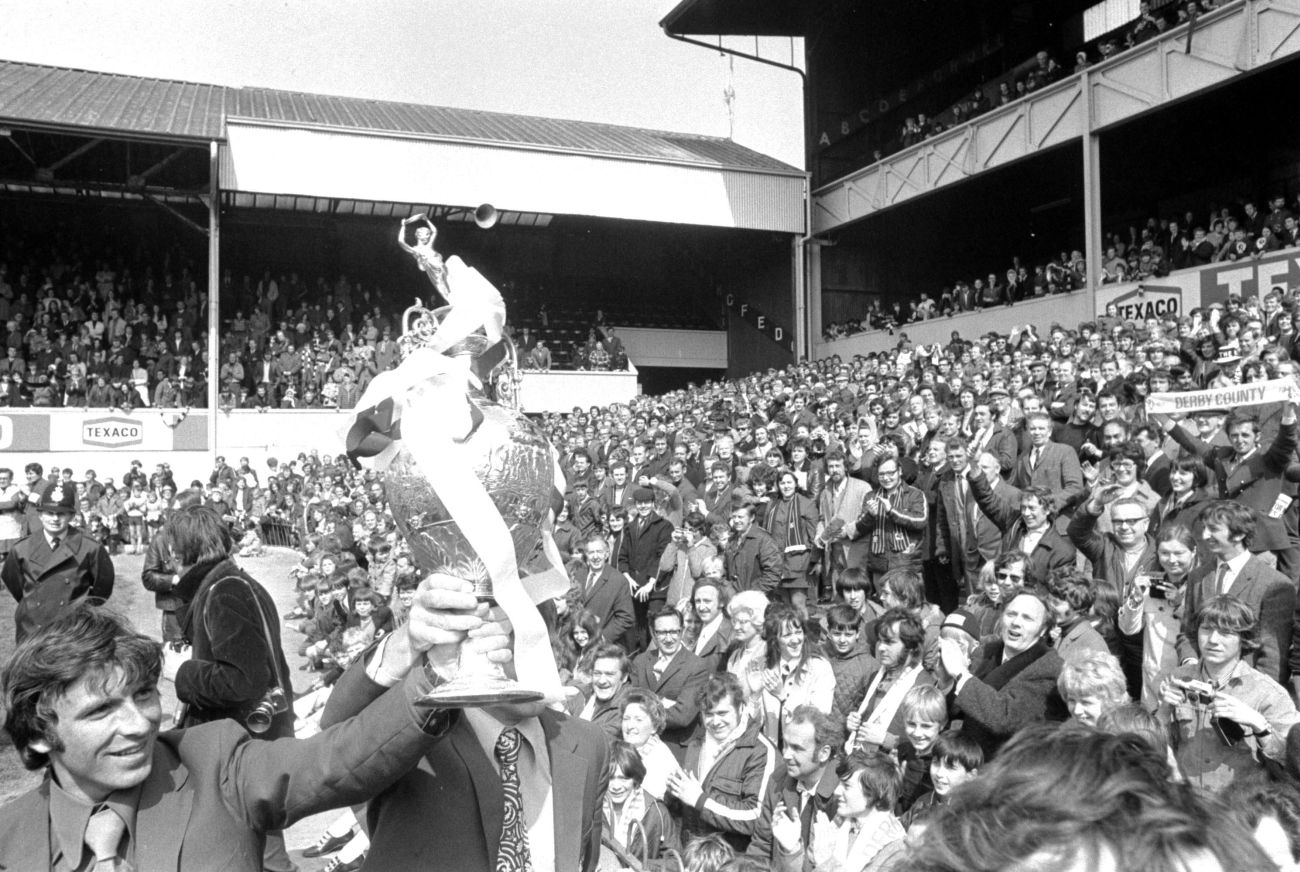
And, they did. They did it comfortably, too. Clough and Taylor’s team mixed it with the big boys and held their own. Only two years previous, they had struggled in the Second Division. Such was their confidence, they started the 1969/70 season in blistering form. Whilst they hit a rocky spell towards the end of the calendar year, Clough and Taylor identified another weak spot in their team. They needed a midfielder who could hold the ball well, pass and chip in with a goal or two. Taylor presented Archie Gemmill as an option.
Gemmill had been playing for Preston North End in the Second Division, but was streets ahead of his team-mates in terms of ability. He was 22-years-of-age and fit the criteria which Clough needed. There was only one sticking point. Everton, the league leaders at the time, were hot on his heels, too. It looked like the Toffees would get their man, but at the eleventh hour, Clough worked his magic. He camped outside of his house, before Gemmill’s wife allowed him to stop for the night. The following morning, Gemmill was a Derby County player.
He fit into the side seamlessly. With Gemmill in the team, Derby would finish the season in strong form, remaining unbeaten in the final 12 games, which included eight victories. The Rams finished fourth in their first season back in the top flight, finishing above the likes of Liverpool, Manchester United, Manchester City and Tottenham Hotspur. Derby were really riding the crest of a wave.
However, the following season wasn’t going to plan. The dreaded ‘second season syndrome’ hit as Derby couldn’t rediscover their form from the season previous as they finished ninth. It was respectable, but for a team that had set their expectations and standards so high, it was seen as a disappointment. They did win the inaugural Watney Cup, however. They had beaten Manchester United, boasting the likes of George Best, Bobby Charlton and Denis Law, 4-1 in the Final of the competition at the start of the campaign.
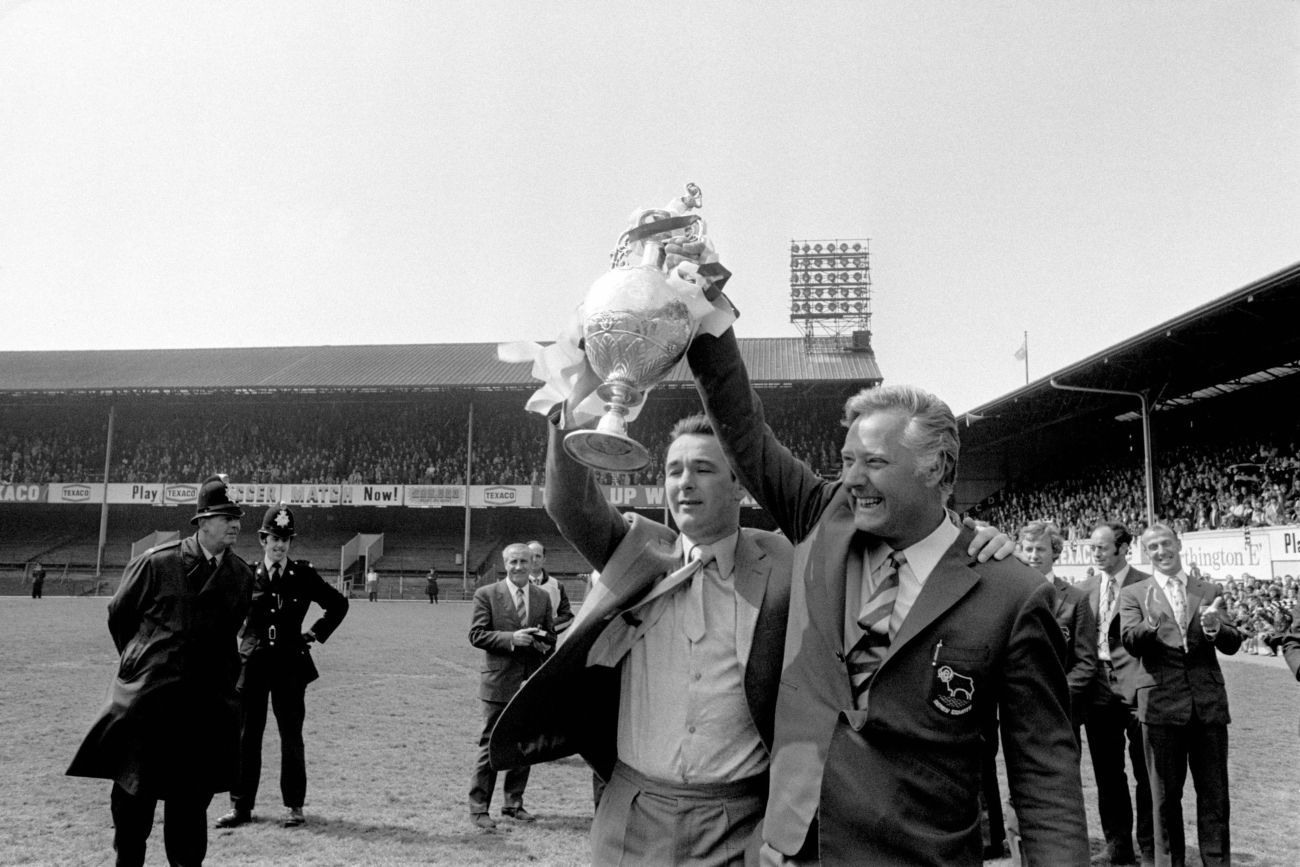
By the end of the season, though, Derby had to wave goodbye to one of its influential figures as Mackay left the Baseball Ground. Aged 36, Mackay would go into management with Swindon Town, and that his departure meant an opening in the defence. Boulton had displaced Green as the club’s number one goalkeeper, whilst Webster, McFarland and Robson picked themselves. Derby were in need of a centre half. Who could fill that void?
Well, it wasn’t going to be Colin Todd. Clough had already stated in the press that the club couldn’t afford the Sunderland defender. But, as was his way, Clough never did things by half. Later that afternoon, the Rams boss sent a telegram to owner Longson informing him of Todd’s signing and the size of the transfer fee. It would be a British record figure. It wasn’t met with joy and excitement in the boardroom. It caused huge strain between the manager and Longson, but Clough had his man.
He knew his abilities already, having coached him in the Sunderland youth team, and he slotted in alongside McFarland at the heart of the defence. Heading into the 1971/72 season, Derby’s first XI picked itself. They had strong players all over the pitch, but they knew they would need some luck along the way. And, they started the season well. The Rams remained unbeaten in their opening 12 league games of the season, winning five of those matches.
A League Cup exit at the Second Round stage followed, as Leeds United got the better of Derby, but they were making good progress in the Texaco Cup. The Rams’ first defeat of the campaign came at Old Trafford against Manchester United in October 1971, but they followed it up with three consecutive wins against reigning champions Arsenal, local rivals Nottingham Forest and Crystal Palace.
Clough’s side did hit a sticky spell over the festive period. They suffered defeats against Liverpool and Leeds United, who were both part of the chasing pack, but key home victories over Manchester City and Everton set them back sailing on course for a high position in the league. The home form, in fact, was a shining light for Clough’s side throughout the campaign. The Baseball Ground surface left a lot to be desired a times, but Derby used it to their advantage as the wins continued to flow.
By the start of 1972, the Rams were in a good position. And they hit form at just the right time. Chelsea, Southampton and Coventry City were put to the sword, whilst they would produce a stunning display to beat fierce rivals Nottingham Forest at the Baseball Ground 4-0. It would be Derby’s biggest win of the campaign. In fact, theRams only lost once in 13 games at the start of the calendar year.
Everybody was pitching in with goals, too. The forward line of McGovern, Hector, O’Hare and Hinton tormented defences, whilst behind them, Gemmill and Durban pitched in with some classy performances. Todd and McFarland created an understanding immediately and even added an attacking threat from corners and Webster and Robson both scored key goals during the campaign.
The excitement around the Baseball Ground was clear to see. Fans wanted in on the action, as did the Match of the Day cameras who regularly showed Derby fixtures. The Rams were box office, especially with the charismatic Clough in charge. Supporters queued around the block for hours to get their tickets, and as the weeks went by, the attendances started to grow and grow. The players were delivering the manager’s vision of fast, attacking, free-flowing football, but they were solid at the back, too.
After Arsenal knocked the Rams out of the FA Cup, it allowed them to fully focus on the league. And, by the start of April, with the campaign entering the business end, the Rams would take a giant step forward in their pursuit of the title as they beat Leeds United 2-0 at home. O’Hare netted the first that afternoon, whilst an own goal from Leeds defender Norman Hunter sealed all three points in a memorable victory.
However, two days later, they were brought heavily back down to earth. After the high of beating Don Revie’s side came the disappointment of losing their first, and only, home game of the season as Newcastle United inflicted defeat on Clough’s side. A goalless draw against West Bromwich Albion at the Hawthorns followed, meaning Derby faced a tough challenge to be crowned league champions.
Four league games remained. The first two standing in front of them were simple. Sheffield United sat mid-table but were strong at home. Derby blew them away, however, beating them 4-0 at Bramall Lane, whilst bottom-of-the-table Huddersfield Town were next up. Goals from McFarland, Hector and O’Hare ensured a comfortable 3-0 victory, which left two league games of the campaign left.
Sandwiched in-between crucial league games against Manchester City and Liverpool, both of whom were challenging for the title alongside the Rams and Leeds United, was a Texaco Cup Final against Scottish side Airdrieonians. There was pressure on all three games. It was high-stakes. First up was a trip to Maine Road to take on Malcolm Allison’s side, who coincidently were playing their final game of their own campaign.
Such were the times, individual campaigns did not need to finish in synchronisation with each other. Derby had two games remaining, Liverpool had three, as did Leeds United. But, with Liverpool and Derby set to go head-to-head in the Rams’ final league game of the season, Manchester City knew they couldn’t win the title. But, it didn’t stop them putting on a display in front of the home fans as they beat Derby 2-0.
Rodney Marsh and Francis Lee scored the goals to secure the two points which saw Manchester City rise above Derby into top spot. And, with Leeds United and Liverpool both winning their respective games that weekend, the Rams dropped down to third. However, attention quickly turned to the Texaco Cup Final against Airdrieonians. Having already drawn 0-0 in the First Leg in January, Derby knew victory at the Baseball Ground would seal the trophy. Goals from Alan Hinton and Roger Davies secured a much graved win as Derby lifted their first piece of silverware that season.
And, they didn’t want it to be their last, either. However, controversy was to follow as Clough and Taylor, the day after beating the Scottish side and lifting the Texaco Cup, tendered their resignation to the board as they wished to join Coventry City. Desperate talks took place between chairman Longson and both Clough and Taylor to work out a solution to the situation, and thankfully after more money was offered, both were convinced to stay.
They needed to see the job through, after all. But, they had one last gargantuan challenge to hurdle as they hosted second-placed Liverpool at the Baseball Ground. A win would take Derby back to the summit of the table, whilst defeat would end their hopes of winning a maiden title. Their fate was in their own hands, but with both Liverpool and Leeds having an extra game to play, the odds were firmly stacked against the Rams.
The highest league crowd of he season, 39,159, packed into Derby’s home ground on Monday 1st May 1972. You could feel the nerves. There was huge pressure, and with Bill Shankley’s side also knowing what victory could do for them, it made for a cagey encounter. And the first half certainly felt like that. It was goalless going into the break, but early into the second half, Derby did make the valuable breakthrough.
Gemmill weaved his magic on the edge of the box as he laid the ball across. Durban dummied the oncoming ball before McGovern smashed home from the edge of the area to give the Rams the lead. Advantage, Rams. But, it was all hands on deck at that point. Players threw bodies on the line, keen to keep hold of the one-goal advantage, whilst Liverpool attacked with purpose. They almost nearly drew level with time ticking down, as Boulton could only palm a 25-yard shot, but Durban, out of nowhere, flung his right leg out to block the onrushing Kevin Keegan at the back post.
It denied him a certain goalscoring opportunity, and was roared loudly by the Baseball Ground crowd, who kicked every ball during the memorable evening. And they cheered Clough’s side over the finishing line as they got the job done with a win against one of their nearest challengers in the league. They had done all they could, and returned to the top-of-the-table, but faced an anxious wait to see if they would be crowned champions. Victories for either Liverpool or Leeds United would see Derby knocked off top spot.
The pair had to wait seven days for their final game of the campaign as Liverpool faced Arsenal at Highbury, whilst Leeds United travelled to Molineux to take on Wolverhampton Wanderers. What did Derby do during this period? They went on holiday, of course. After all, there was nothing they could do, so they took some time to relax in the Majorcan sun. Taylor went with the team, but Clough elected to go away with his family to the Isles of Scilly.
The players enjoyed some down time, as did Clough and Taylor. The break allowed them to take their minds off the league campaign for a week at least. On the pitch, Leeds only needed a draw to be crowned champions, whilst Liverpool needed a win. Seven days went by, and it was judgement day. No more talking, no more partying, the season all came down to two results. It was completely out of Derby’s hands, but, crucially, they were in the driving seat.
Leeds started on the back foot and went behind in the first half. A goal from Wolves’ Frank Munro meant as results stood, Derby would be champions. And when they doubled their lead in the second half through Derek Dougan, the Rams were seeing their dreams come a reality. But, a goal at Highbury could swing the mood very quickly. And for as much as Liverpool tried, they just could not break down a stubborn Arsenal defence. Leeds did manage to pull a goal back through Billy Bremner, meaning a goal in each game would knock Derby off top spot.
Leeds rallied in their bid to score the decisive equaliser as they created several chances, but were thwarted, whilst Liverpool just run out of energy as they could only muster a draw with Arsenal. Wolves just needed to hold on to all three points now and Derby would be crowned champions. And when the final whistle was finally blown at Molineux, a collective roar went up across the Midlands as Derby had realised their dream. Derby County were First Division champions for the first time in their history.
The players and Taylor celebrated into the night, whilst Clough toasted a job well done with his family. The Rams had defied the odds completely to win their maiden First Division title. Only five years previous, they had struggled in the Second Division. The players deserved huge credit for the job they did, but with Clough’s motivation and Taylor’s recruitment, everything just clicked and it was a season to remember for all the right reasons.
The squad returned from Majorca and received their winners’ medals on the pitch at the Baseball Ground in front of a packed out crowd, all wanting to get a glimpse of their heroes. What they had done for the city of Derby was incredible. It put the club on the map and ensured European football would be heading to the East Midlands. That thought was parked for the time being as the Rams savoured every moment of their success.
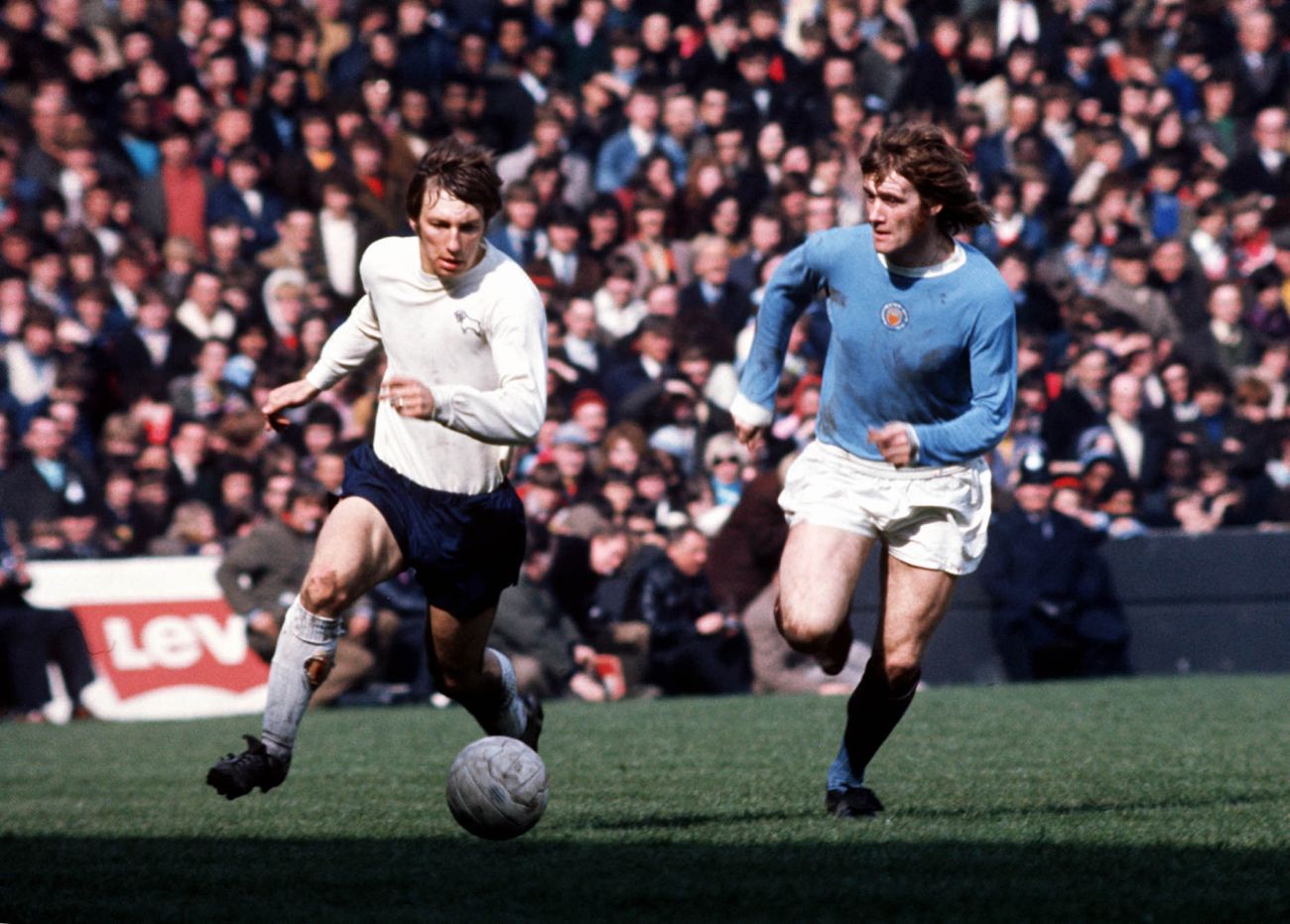
Because what they had done was reminiscent of a fairytale. It was a rollercoaster. Probably one which everybody would rather have been a smoother ride, but they got through it and earned their just rewards at the end. Everyone played their part, too. The defence, along with goalkeeper, kept 22 league clean sheets, whilst going forward, Derby netted 69 goals, the third-best in the league.
They played with grit, determination and passion. They displayed traits of champions, which was a title they earned, and battled against the odds the whole way. Nobody expected them to win, nobody expected them to challenge, but they did. It’s a story where Derby County took on the big boys and won. Fifty years may have passed, but that doesn’t stop us remembering. An incredible team, led by Clough and Taylor who are still rightly regarded as club legends. Half a century on but we still don’t forget. Thank you for the memories.

